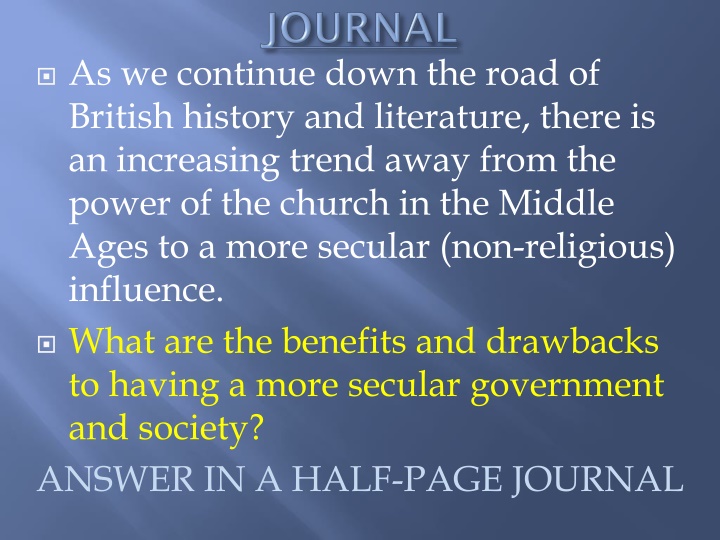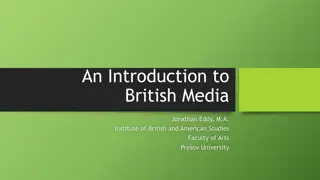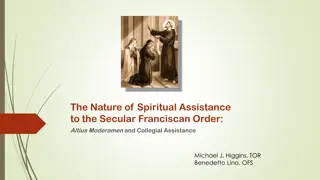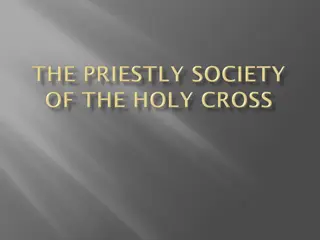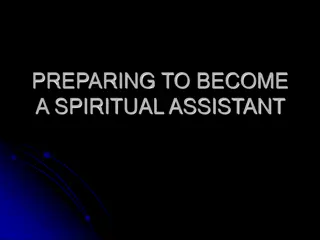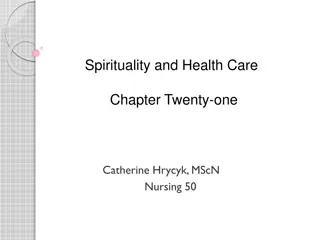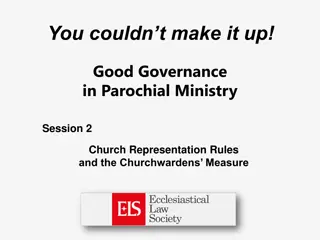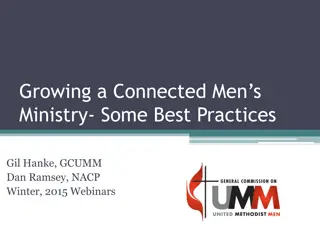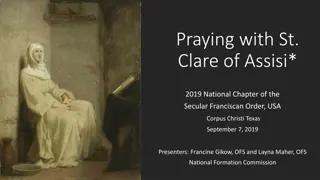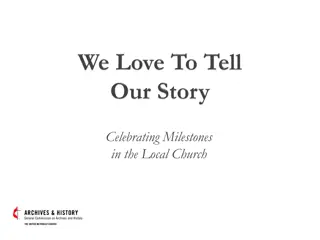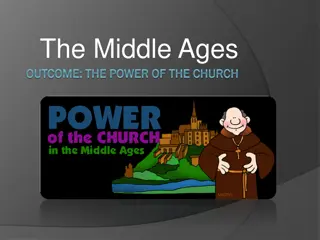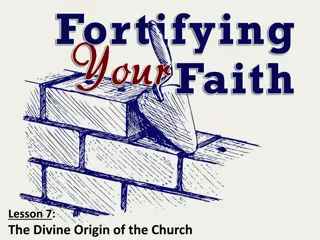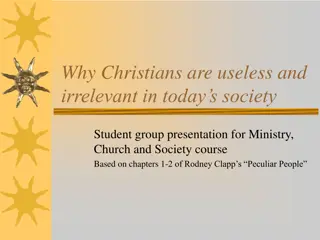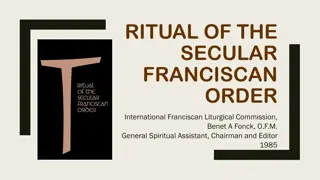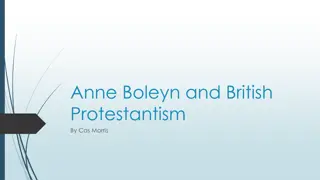The Shift from Church to Secular Influence in British History
The transition from church-dominated governance to a more secular society in British history brought both benefits and drawbacks. While secularism promoted intellectual freedom, scientific advancement, and rationality, it also led to conflicts between traditional beliefs and new ideas, as seen in the Age of Reason and Neoclassicism. The balance between secular governance and religious influence has shaped British history, sparking cultural revolutions and political changes.
Download Presentation

Please find below an Image/Link to download the presentation.
The content on the website is provided AS IS for your information and personal use only. It may not be sold, licensed, or shared on other websites without obtaining consent from the author.If you encounter any issues during the download, it is possible that the publisher has removed the file from their server.
You are allowed to download the files provided on this website for personal or commercial use, subject to the condition that they are used lawfully. All files are the property of their respective owners.
The content on the website is provided AS IS for your information and personal use only. It may not be sold, licensed, or shared on other websites without obtaining consent from the author.
E N D
Presentation Transcript
As we continue down the road of British history and literature, there is an increasing trend away from the power of the church in the Middle Ages to a more secular (non-religious) influence. What are the benefits and drawbacks to having a more secular government and society? ANSWER IN A HALF-PAGE JOURNAL
File:King Charles II by John Michael Wright or studio.jpg Don t tell me my hair is awesome, I know. -Charles II
After Cromwells government is overthrown, the English monarchy is restored with him (that s why it s called the Restoration ) Began an era of sophistication, emulated the French court of Louis XIV Shared power with Parliament Tories supported royal power Whigs wanted limited royal authority
After Charles II died, Charles brother James tried to restore Catholicism and was forced to abdicate the throne Catholics were permanently banned from the throne with the Act of Settlement England fought many wars with Catholic France, The Second Hundred Years War Scotland officially unites with England to form Great Britain England wins Canada from France but loses U.S. under King George III
Also called The Age of Reason Used science to understand the causes of natural events (comets, eclipses etc) Used the scientific method and learned much about the nature of stars and the Milky Way The age of Sir Isaac Newton John Locke rejects divine right Citizens rebel against unjust policies
Neoclassicism new classicism, revival of the styles and spirit of ancient Greece and Rome of Antiquity Sometimes called Augustan Age Restraint, rationality, and dignity of classical writing Stressed balance, logic, order, and emotional restraint Focused on the society and human intellect
Upper-class women interested in exercising their reason and learning Universities and coffee houses were closed to women so they began private gatherings called salons Popular evening entertainment attended by well-known figures, women wore bluestockings (everyday clothing) instead of silk
FOUR IMPORTANT WOMEN WRITERS Aphra Behn (first woman to earn a living writing) Charlotte Smith (radical attitude towards morality and class equality) Fanny Burney (sentimental, successful novelist) Mary Wollstonecraft (mother of Mary Shelley, author of Frankenstein) https://encrypted-tbn0.gstatic.com/images?q=tbn:ANd9GcTRUOwk5V0qQtLl_SmGN5lnf-VORjpUewjQkiHznH37wOebY6nloA
Satire making fun of something in society in order to point out its flaws and encourage improvement Horatian Satire Gentle, playful, sympathetic criticism Used by Alexander Pope Juvenalian Satire Dark, biting criticism Used by Jonathan Swift to savagely attack educators, politicians, and the clergy
Gullivers Travels is perhaps the most famous piece of Restoration literature. It is a satire by Jonathan Swift that satirized both human nature and the politicians of the time. It tells the story of a man named Gulliver who visited fantastical lands. The beings in these lands (such as the tiny Lilliputians or the giant Brobdingnags) represented people Swift was satirizing, such as the Lilliputians representing Parliament.
